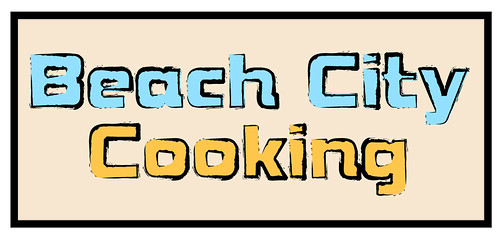
I'm not nearly as into baking as I am into cooking, but I do really like baking whenever I get around to it. I always forget just how different the satisfaction you get from baking something just terrific is from the enjoyment that results from cooking something delicious. There's something often more freeform about cooking--it seems like there's usually more room for improvisation, and trial and error. Baking usually seems like more of an exact science to me, as getting a pie out of the oven just in time for it to be cooked through, but not overcooked or undercooked, can be pretty tough if you're not either (a) checking it frequently enough, (b) an expert baker, or (c) both of the above. And if you over-mixed the flour, or mistook a measurement, well, baking's just not as forgiving as cooking. So perhaps if it turns out great, you can get a little more satisfaction out of it, but if it turns out terrible, you might be more disappointed. Either way, whenever I bake, I find it to be pretty worthwhile, whether that means a worthwhile learning experience because I just burned a whole tray of brownies, or, hopefully, a worthwhile eating experience, because those brownies didn't burn at all, and are just soft, gooey, and delicious.
Today, let's start off with a basic pastry dough that's wonderfully versatile and requires, wait for it, no blender or food processor. It's all by hand. That's right: we're going to make pastry dough like the French cavemen did.

For this recipe, you'll need a 1/4 cup measure, a sharp knife, a tablespoon measure, and a big red bowl. Oh, and some saran wrap.

The recipe we're using is this great basic pastry dough recipe I found at Epicurious. Okay, so to start, you're going to need to mix 1 1/4 cups of flour and 1/4 teaspoon of salt. I usually just eyeball the salt, but I like to live on the edge like that. That's just the kind of radical thinking we like to employ here at Beach City Cooking.

You'll need a cold, unsalted stick of butter. I recommend Trader Joe's, their butter is usually a really good deal.

Chop it up into 1/4- to 1/2-inch pieces, and add to your mixing bowl.

Okay, so, for this next step, you could use a blender or a food processor. But both of those are no fun to clean. I'm not sure what would be fun to clean, really, but those definitely rank pretty far low on the list. So instead, take your hands and mix everything together until you get a coarse peameal-esque texture.

Add 3 tbsp cold water (I just poured it into the tbsp measure from our Brita pitcher), and stir until everything's just mixed enough. Grab a handful of the dough, and if it stays together, you're golden, if not, add 1-2 more tbsp of cold water.

Insert a Beach City Cooking stock photo of a lightly-floured surface. Any will do.

Literally round your dough up into one big ball, and drop it onto the LFS. (That's "lightly-floured surface" for any acronym admonishers out there.)

Demonstrate your best understanding of mitosis, twice.

This is the fun part. Flatten each ball of dough with the bottom of your palm, in order to get the fat moving around the dough and distributing evenly. Do this a couple times on each ball.

Then bring the dough back together--

--and press into a 5-7'' thick pancake. You're looking for a big Vermont lumberjack pancake here, not a super-flat, diner-style one.

Good to go? Okay, good. Nice work! Wrap this in a little saran wrap, and refrigerate it for at least one hour, or until you're ready to use it--it'll keep for up to three days in the fridge. Over the course of the next week or two, we'll look at a few different possible uses for this pastry dough, so stay tuned.

Thanks for stopping by Beach City Cooking, and I'll see you all very soon for another post. Have a great night, and stay cool!

No comments:
Post a Comment